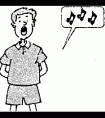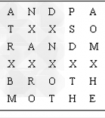Follow theChinese.Fillintheblanks. 根据中文提示,完成下列句子。1. What(发生) tothetreesintherain ?2. Ioftenlookattheflowersinthe(公园). 3. LiMingalways(醒-六年级英语
衣服
jacket shirt T-shirt skirt dress jeans pants socks shoes sweater coat shorts sneakers slippers sandals boots hat
交通工具
bike bus train boat ship car taxi yacht taxi jeep van plane subway motor cycle
杂物
window door desk chair computer board fan light teacher's desk picture wall floor curtain trash bin closet mirror end table
football present lamp phone sofa shelf fridge table air-conditioner photo plate knife fork spoon ball kite box violin e-card e-mail traffic light money medicine
地点
home room bedroom bathroom living room kitchen classroom school park library post office hospital cinema bookstore
farm zoo garden study playground canteen teacher's office gym washroom art room company factory fruit stand pet shop nature park theme park bank village city
国家
China/PRC America/USA England Canada/CAN
天气
cold warm cool snowy sunny hot rainy windy cloudy weather reporter
景物
river lake stream forest path raod house bridge building rain cloud sun mountain sky
植物
flower grass tree seed sprout plant leaf
星期
day Monday Tuesday Wednesday Thursday Friday Saturday Sunday weekend
月份
month January February March April May June July August September October November December year
季节
spring summer fall(autumn) winter
方位
south north east west left right
患病
have a fever hurt have a cold have toothache have a headache have a sore throat
数词
One two three four five six seven eight nine ten eleven twelve thirteen fourteen fifteen sixteen seventeen eighteen nineteen
twenty thirty forty fifty sixty seventy eighty ninety first second third fourth fifth eighth ninth twelfth twentieth
形容词
big small long tall short young old strong thin active quiet nice kind strict smart funny tasty sweet salty sour fresh favourite
clean tired excited angry happy bored sad fine great heavy new fat happy right little lovely beautiful colourful pretty cheap expensive sick better
介词
in on under near behind next to over in front to from to for
代词
I me my we us our you your he him his she her it its they them their
动词
Play swim skate fly jump walk run climb fight swing eat like have turn buy take live teach go study learn sing dance row do homework watch TV read books cook the meals water the flowers sweep the floor clean the bedroom make the bed set the table wash the clothes do the dishes use a computer do morning exercises eat breakfast eat dinner go to school have English class play sports get up climb mountains go shopping play the piano visit grandparents go hiking fly kites make a snowman plant trees draw pictures cook dinner read a book answer the phone listen to music clean the room write a letter write an e-mail drink water take pictures watch insects pick up leaves do an experiment catch butterflies count insects collect insect collect leaves write a report play chess have a picnic get to ride a bike play the violin make kites collect stamps meet welcome thank work look help pass show use clean open close stop wait drive send feel become think wear put on go home go to bed play computer games do housework empty the trash put away the clothes get off(on) take a trip go on a trip read a magazine go to the cinema
疑问词
what(什么) what colour(什么颜色) what time(几点)
what day(星期几) how(怎样)how old(年龄多大,几岁)
how many(多少) how much (多少钱) how tall (多高)
how heavy(多重) how long(多长) how big(多大) how large(面积多大) who(谁) when(什么时候)
whose (谁的) where(在哪里) why(为什么)
which(哪一个)
be动词
am is are was were
助动词:do does did
情态动词
can should would will
考点名称:一般现在时,动词单数第三人称
一般现在时:
表示现在经常反复发生的动作、存在的状态或习惯性的动作的时态。可概括为
①经常性或习惯性动作;
②长期存在的特征或状态;
③普遍真理、客观事实等。
构成:
一般现在时用行为动词的原形,但第三人称单数作主语时,动词的词尾要加-S。
a. 表示经常性或习惯性的动作。
例:Li Ming always helps the old man. 李明一直帮助这位老人。
We usually go to school on foot. 我们通常步行上学。
They sometimes go fishing on Sundays. 他们有时周日去钓鱼。
b. 表示永恒不变的事实或真理。
例:A bird flies with wings. 鸟用翅膀飞翔。
c. 用在格言、谚语中。
例:Pride goes before a fall. 骄者必败。- 一般现在时具体用法:
1.表示经常的或习惯性的动作,常与表示频率的时间状语连用。
时间状语:
always,usually,every morning/night/evening/day/week/year,often,sometimes,
occasionally,from time to time,twice a week,rarely,seldom,once a month,hardly,ever,never.
e.g: I leave home for school at 7:00 every morning.
2.表示主语具备的性格、能力、特征和状态。
e.g:I don't want so much.
Ann Wang writes good English but does not speak well.
比较:Now I put the sugar in the cup.
I am doing my homework now.
3.表示客观事实和普遍真理。
e.g :The earth moves around the sun.
Shanghai lives in the east of China.
4.在时间状语从句和条件状语从句中,常用一般现在时代替将来时。
5.表示预先计划或安排好的行为。
6.小说故事用一般现在时代替一般过去时。新闻报道类的内容,为了体现其“新鲜”性,也用一般现在时来表示过去发生的事情。
7.有些表示状态和感觉的动词表示现在发生的具体行为时,只用一般现在时,而不用进行时态。
8.表示现在发生的具体动作或存在的状态
9表示格言或警句中。 e.g Pride goes before a fall. 骄者必败。
注意:此用法如果出现在宾语从句中,即使主句是过去时,从句谓语也要用一般现在时。
例:Columbus proved that the earth is round..
第一句用一般现在时,用于操作演示或指导说明的示范性动作,表示言行的瞬间动作。
再如:Now watch me,I switch on the current and stand back.
第二句中的now是进行时的标志,表示正在进行的动作的客观状况,所以后句用一般现在时。 - 一般现在时用法表:

第三人称单数的构成见下表:
不规则变化have和be动词 变have为has 变be为am,is,are例: have-has; be-am,is,are词
构成
举例
一般情况
词尾+s
动词原形
第三人称单数
work(工作)
stop(停止)works
stops以-ch, -sh, s, x, o结尾
词尾+es
teach(教)
wash(洗)
dress(装扮)
fix(安装)
go(去)teaches
washes
dresses
fixes
goes以“辅音字母+y”结尾
变y为i,再加es
fly(飞翔)
try(尝试)flies
tries 一般现在时的特殊用法:
一些动词可用一般现在时来表达现在进行时:
verbs of the senses: hear,see,taste,smell,feel
verbs of the thinking: believe,know,mean,realize,think,remember
verbs of the linking: dislike,fear,heat,like,love,want
verbs of the possession: belong,have,own,possess
- 最新内容
- 相关内容
- 网友推荐
- 图文推荐
| [家长教育] 孩子为什么会和父母感情疏离? (2019-07-14) |
| [教师分享] 给远方姐姐的一封信 (2018-11-07) |
| [教师分享] 伸缩门 (2018-11-07) |
| [教师分享] 回家乡 (2018-11-07) |
| [教师分享] 是风味也是人间 (2018-11-07) |
| [教师分享] 一句格言的启示 (2018-11-07) |
| [教师分享] 无规矩不成方圆 (2018-11-07) |
| [教师分享] 第十届全国教育名家论坛有感(二) (2018-11-07) |
| [教师分享] 贪玩的小狗 (2018-11-07) |
| [教师分享] 未命名文章 (2018-11-07) |

![读句子,选出正确的图。Whatabigwatermelon![ ]A.B.-四年级英语](http://www.00-edu.com/d/file/ks/4/1/7/2019-08-11/small4a305321f43da5b832321508021a7edb1565477037.gif)


![根据图片,选择正确答案。1. Tom sends nine postcards to his _____________ .[ ]A. brotherB. motherC. father2. Where do I put the _____________ ?[ ]A. stamp-五年级英语](http://www.00-edu.com/d/file/ks/4/1/7/2019-08-11/smallb78172089d6038aa813d3891109792701565492155.gif)

